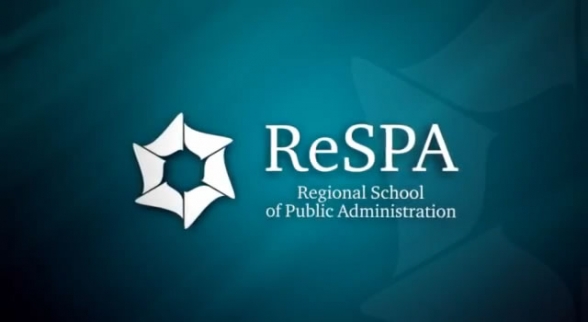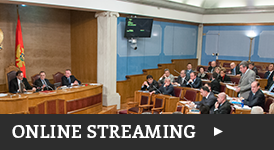Organized by Human Resources Administration, NISPA cee network and Slovak-aid, in Regional School for Public Administration in Danilovgrad, on 23rd April, 2013, closing Conference of the Project “Building capacities in Montenegro for compliance of law and other regulation with the EU legislation” was held, at which publication “Sharing selected Slovak experience with Montenegro for its EU accession process” was presented.
Ms. Svetlana Vuković, the Director of the Human Resources Administration, Ms. Snežana Radović, the Director General for European Integration in the Ministry of Foreign Affairs and European Integration and Mr. Mirko Vintara, the President of NISPAcee Network had the opening statement. On that occasion, the importance of the support from the Republic of Slovakia to various projects relating to building capacities of Montenegrin administration and overall preparation of state institutions for the EU membership was emphasized. It was pointed that successful cooperation was achieved through one-year project that comprised holding seminars in Montenegro and study visit of state employees to Slovakia, and which terminates by the conference at which publication with the analysis of 12 different areas concerning European integration process is presented.
In continuation, Slovak experts presented results of the comparative analysis of different segments of Montenegrin and Slovak public administration during the accession of this state to the EU. Within the first section titled State administration and division of responsibilities in the European integration process organizational scheme and responsibilities of the national Parliament, the Government secretariat, the Constitutional Court, the Ministry of Foreign Affairs and the central body at the Government level for control of compliance of the national with the EU legislation were presented. The second section comprised information on provisions of the Constitution of Slovakia adopted due to the need to regulate issues regarding the EU, relations of the Government and the Parliament in European affairs and compliance of regulations of the Government through special source of law for implementation and transposition of the EU legislation. The third section touched upon the defence aspects of implementation of the EU acqius in terms of methods and forms of implementation, while the last section comprised Slovak experience within the impact assessment system of the proposed regulations and motivating state employees in the accession period.
The conference was attended by the representatives of the professional service of the Committee on Economy, Finance and Budget, the Committee on Political System, Justice and Administration and the Committee on European Integration.










